
Know everything about Paper -3
Know everything about Paper –3
(Written by : N.R. Jayaraman)
Some of the important properties of paper are :
1. GSM:
Basic weight of Paper expressed in terms of Grams per Square Meter is shortly called as GSM. The GSM indicates how dense the paper is and help the printer decide suitable paper for suitable job. The higher the GSM, the thicker the paper. The GSM help in working out the cost of a ream of paper in a given thickness, and comparison of cost of the same weight of paper per ream in different size. A ream of paper means 500 sheets in any given size. When one say 80 GSM paper the basic paper weight per square meter will be 80 grams, but if the same weight of paper when supplied in two different sizes, the total weight of the paper per ream may differ. Newsprint normally weights 45 GSM and copying paper 80 GSM. If the weight is 200 GSM or more the paper is called board.
The GSM is determined by weighing a known size of paper after conditioning the sample for 24 hours in ideal press room condition having 23°C temp with 50% RH .
The GSM is determined by weighing a known size of paper after conditioning the sample for 24 hours in ideal press room condition having 23°C temp with 50% RH .
To find out the GSM of the paper the following formula can be used:
1000 x 1000000
——————————————————————————
Weight of paper in Kg x length x width of paper in mm x 500
To find out the weight in Kg of the paper the following formula can be used:
GSM x length x width of paper in mm x 500
————————————————————
1000 x 1000000
1000 x 1000000
——————————————————————————
Weight of paper in Kg x length x width of paper in mm x 500
To find out the weight in Kg of the paper the following formula can be used:
GSM x length x width of paper in mm x 500
————————————————————
1000 x 1000000
2. Bulk :
Bulk means thickness of paper. In strict sense it does not reflect GSM, but indirectly related to it. The thickness of the paper usually expressed in terms of thousandths of an inch, is the bulk of the paper. The thickness is influenced by the fiber which in turn influence the flexibility of paper which may sometimes cause printed quality related problem. Bulk affects the flexibility of paper and desktop printers can have difficulty with papers that are too thick.
3. Porosity
Porosity is the measurement of the paper surface that determine how much air can penetrate through its base. The extent of Air permissibility will influence the absorption qualities of ink on paper, the ink binding properties and strength of the paper. The Porosity will depend on the fiber formation during Paper manufacturing process. Therefore in order to further increase the porosity of the paper, the paper is coated, super calendared or surface sized with some fillers to artificially fill up the fiber gaps to reduce the level of porosity.
If the surface of the paper is more pores it can cause show through of ink besides increasing the consumption of the ink. Porosity is an indication of absorbency or the ability of the paper to accept and allow drying of the ink on its surface. At the same time Paper with less Porosity will cause ink print smudging and ink drying problem thus causing set off. Therefore paper with sufficient porosity level will be required for printing. to print on Paper deployed for different processes of printing. Porosity is an important factor when used on high speed Web Presses as the paper may not rapidly absorb the ink to commensurate with the speed of the press. At the same time a highly pores paper will tend to curl and may not properly get stacked in the delivery pile.
4. Sizing :
In order to smoothen the surface of the paper for better printability and to fill up the gaps in the fibers to strengthen them that forms the paper surface, the paper is coated with special material called sizing material. They include PVA sizing, Alum, China Clay and other such material. This is done during Paper making process and also done to prevent the paper from absorbing too much moisture.
5. Opacity
If the surface of the paper is more pores it can cause show through of ink besides increasing the consumption of the ink. Porosity is an indication of absorbency or the ability of the paper to accept and allow drying of the ink on its surface. At the same time Paper with less Porosity will cause ink print smudging and ink drying problem thus causing set off. Therefore paper with sufficient porosity level will be required for printing. to print on Paper deployed for different processes of printing. Porosity is an important factor when used on high speed Web Presses as the paper may not rapidly absorb the ink to commensurate with the speed of the press. At the same time a highly pores paper will tend to curl and may not properly get stacked in the delivery pile.
4. Sizing :
In order to smoothen the surface of the paper for better printability and to fill up the gaps in the fibers to strengthen them that forms the paper surface, the paper is coated with special material called sizing material. They include PVA sizing, Alum, China Clay and other such material. This is done during Paper making process and also done to prevent the paper from absorbing too much moisture.
5. Opacity
Opacity is the measure of how much light pass through a sheet. A perfectly opaque paper is the one that is absolutely impervious to the passage of all visible light. It is the ratio of diffused reflectance and the reflectance of single sheet backed by a black body. Opacity is important in Printing Papers, Book Papers, etc. The degree to which light is not allowed to travel through a substance is called the opacity of the paper. If the opacity of the paper is more it will cause show through of the print i.e showing the front side printed matter onto the back side of the sheet of paper. Papers that contain more fibers- thickness- , degree of bleaching of the fibers, and the kind of coating etc have the ability to hold the light thus preventing the print to show on to the backside. One should understand that the thickness of paper alone is sufficient to increase the opacity , sometimes even the thinner paper will have more opacity than the thicker paper because of the fiber and filler contents.
…………to be continued

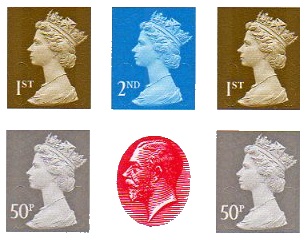
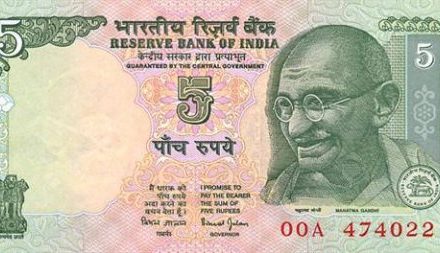
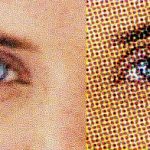






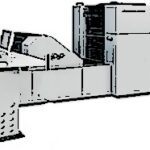
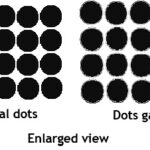
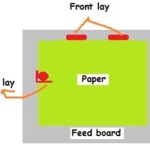
Recent Comments